17 Aug With The Right Insurance Coverage, You Can Help More People
Organizations that focus on helping others can’t afford to ignore business basics, such as proper insurance coverage. Nonprofits and social services do differ from traditional businesses, but they also have many similarities, including risk.
Without high quality insurance coverage your, nonprofit or social service organization is very vulnerable. A serious loss, a lawsuit, or a data breach could impede or stop operations entirely. On the other hand, high quality insurance coverage protects your interests so you can serve more people and achieve your goals.
While the exercise of determining which risks your business or non-profit are most susceptible to is specific to each organization, the following risks are fairly common across most industries:
Bodily Injury
If someone slips or falls on your property and injures themselves, they could file a lawsuit against your organization. Don’t assume that, just because your main focus is helping people, they won’t try to recover damages. Your organization is not immune to liability.
Legal and medical bills accumulate quickly and this could lead to financial disaster if you don’t have the proper liability insurance in place. Commercial general liability insurance may protect you against basic exposures, but it is important you tailor your coverage to your specific industry.
Obviously, the needs of an organization such as Habitat for Humanity, which operates on construction sites, differs from the American Civil Liberties Union, which spends most of its time in offices and courtrooms. Discuss your needs with your insurance agent to ensure that you have the proper coverage in place.
Property Loss or Damage
Commercial property insurance can cover your organization for losses, such as theft from a break in. It may also cover you for specific disasters such as fires or water damage from burst pipes, but a conventional policy does not cover all risks. For instance, if your organization operates in an area prone to earthquakes or floods, you will need additional coverage.
It is also important for you to understand what compensation your policy offers. Some policies offer replacement value while others offer actual cash value (ACV). ACV coverage reimburses you for losses less depreciation. For most organizations, a replacement value policy is a better choice.
Service Failures or Negligence
Your board of directors often works for your organization because they believe in your cause, but they aren’t infallible. They can make financial, operational, or employment-related errors which can have serious consequences. Nonprofits and social service agencies are also under more scrutiny, and lawsuits do occur.
To mitigate the risks associated with errors that your directors make while performing their duties, nonprofits often buy a Directors and Officers (D&O) policy. It extends to directors, officers, or others representing or acting on behalf of the organization.
It can also partially cover employment-related risks regarding hiring, firing, and promoting staff, but your insurance agent may also recommend Employment Practices Liability insurance because it provides coverage for issues such as harassment and wrongful termination.
Errors & Omissions or Malpractice
D&O policies do not necessarily cover errors or omissions, or malpractice. As mentioned earlier, a D&O policy protects personnel from claims made while they perform their duties. However, to protect your organization from negligence claims when you provide advice or services, you need Professional Liability insurance.
Professional Liability insurance prevents your organization from bearing the full cost of defense and damages awarded in a negligence lawsuit. If your nonprofit operates in human services, health care, or you provide counseling or vocational training, it is highly recommended.
Data Protection
Nonprofits often collect and store sensitive personal and financial data. As keepers of this valuable information, your organization has a duty to safeguard it properly. However, nonprofits and social services are often understaffed, utilize volunteers, and rarely have the resources to understand, implement, and maintain security best practices. This makes them an ideal target for hackers.
According to a 2016 NetDiligence report, nonprofits accounted for 10% of cyberattack claims exposing an average of 12,659 records with costs averaging $208,015 per claim.
National Cyber Security Alliance statistics also show that 60 percent of small companies cannot operate more than six months after a cyberattack, and nonprofits are even more susceptible. Cyber liability insurance can help your organization pay legal expenses, settlements and judgements as well as the costs related to notifying the affected parties. It may also pay for credit monitoring services for victims and marketing to help restore your good name.
Proper insurance coverage for nonprofit and social service organizations is extremely important. Your organization has many of the same risks associated with other businesses. Each organization’s needs differ so don’t rely on unaltered policies. Let Gilbert’s Risk Solutions qualified agents tailor your coverage to address your specific risks. With the right coverage, you can help more people.


No Comments